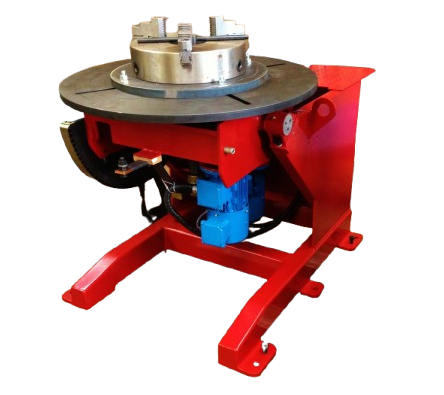Massive and wide ranging stock
of new, used and hire machines
Submerged Arc Specialist Suppliers
Expertise for setup and training
Welding Positioners
Spectrum Rental Division are the UK's leading stockist of welding positioners from 100kg capacity up to 30 tonnes capacity
- TO HIRE 100KG @ £50 p/week
- TO HIRE 300KG @ £100 p/week
- TO HIRE 500KG @ £150 p/week
- TO HIRE 1 TONNE @ £200 p/week
- TO HIRE 3 TONNE @ £250 p/week
- TO HIRE 5 TONNE @ £300 p/week
- TO HIRE 10 TONNE @ £400 p/week
- TO HIRE 10 TONNE AH @ £450 p/week
- TO HIRE 20 TONNE AH @ £500 p/week
- TO HIRE 25 TONNE AH @ £600 p/week
- TO HIRE 30 TONNE @ £700 p/week
Get in contact to set an account up, learn more and get a quote for the correct welding positioner. Also see our welding rotators for hire.
-
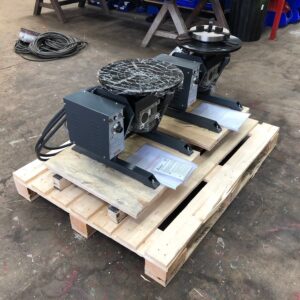
100kg welding positioner for hire
Read more -
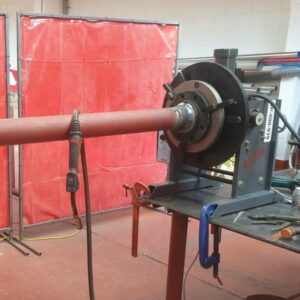
300kg welding positioner for hire
Read more -
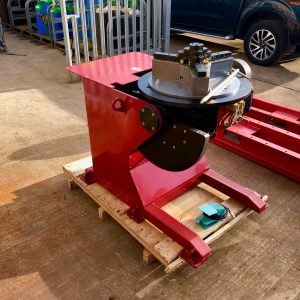
500kg welding positioner for hire
Read more -
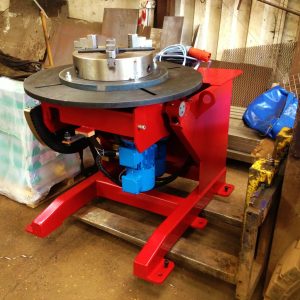
1 tonne welding positioner for hire
Read more -
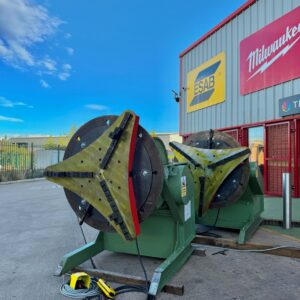
3 tonne welding positioner for hire
Read more -
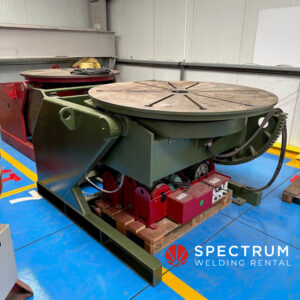
5 tonne welding positioner for hire
Read more -
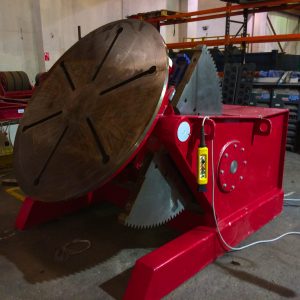
10 tonne welding positioner for hire
Read more -
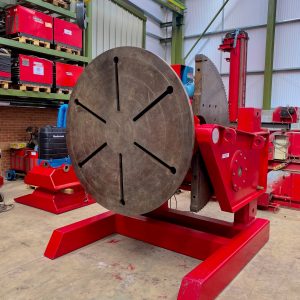
10 tonne adjustable height welding positioner for hire
Read more -
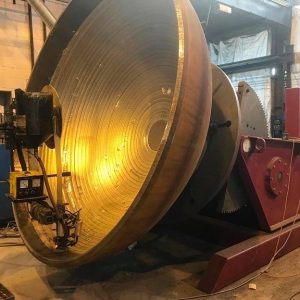
20 tonne adjustable-height welding positioner for hire
Read more -
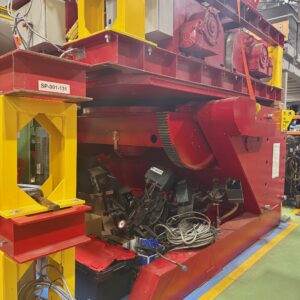
25 tonne adjustable height welding positioner for hire
Read more -
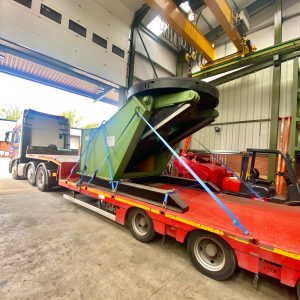
30 tonne welding positioner for hire
Read more
When in Doubt, Get a Bigger Positioner
If you're unsure which welding positioner to choose, the simplest and safest rule is this: go for a larger machine if your job is anywhere near the upper limits of a smaller one.
Think about your workpiece not just in terms of weight, but also how far it sticks out. A relatively light object mounted far from the centre of rotation creates a large torque, putting far more strain on the machine than the weight alone suggests.
Also, consider welding rotators to mitigate torque.
Understanding Capacity: It’s All About Leverage
Welding positioners aren’t rated only by how much weight they can hold — they’re rated by how much torque they can manage. Torque is a product of weight and distance from the centre, so both factors are critical. This is where charts like our 5-tonne load chart come in.
Let’s break it down with a rule of thumb:
Torque = Weight × (Distance ÷ 2)
(in Newton-metres, assuming weight is in kilograms and distance in metres)
Our positioner load chart tells you the maximum weight it can safely handle at various distances. For example:
-
At 500mm from the centre, a balanced load can weigh up to ~3000kg.
-
At 2000mm, that safe limit drops to around 600–700kg, depending on how balanced the load is.
To help you quickly estimate this, we’ve analysed the official load chart and created simplified formulas:
-
Balanced Load:
Load (kg) = 114007 / Distance^0.69 -
Unbalanced Load:
Load (kg) = 100844 / Distance^0.70
Plug in the distance in millimetres to get a rough guide to the maximum load. For example, a workpiece mounted 1500mm out from the centre would allow:
-
~840kg if balanced
-
~760kg if unbalanced
This helps you avoid overloading a machine even if the raw weight seems within spec. When unbalanced, the safe limit is significantly lower.

